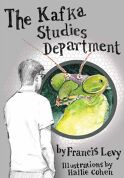Booklife Review
And so it goes in these short, sharp, irresistible fictions, penned with brisk precision and often centered on characters who hold firm to points of self-invented principle no matter what it costs them—and no matter that impossibility of articulating what said principles even are. The literary novelist of “Happily Ever After” achieves surprise popular success and then is stymied by fear of what publishing again might reveal about his self-conception and his own ambitions. Two intensely close friends sunder their decades-long relationship and then encounter each other on independently booked vacations—and each, out of pride, barely acknowledges the person who has given her life meaning.
The collection’s back half focuses on a man named Spector, sometimes a businessman and sometimes employed at the Kafka Studies Department. In a series of sharp-elbowed but quietly empathetic stories—all blackout length, like the rest of the collection—Spector is revealed as a miserable horndog who will cheer his father’s failing marriage, will propose to a woman whose company he deplores simply because he adores her breasts, and will spend his last minutes on this Earth trying to prove some point to his wife that she neither understands nor cares about. The stories are hilarious, cutting, endlessly surprising, and utterly human.
Takeaway: Sharp, incisive miniature fictions that pin down contemporary anxieties.
Comparable Titles: Donald Barthelme, Ken Kalfus.
Production grades
Cover: B+
Design and typography: A
Illustrations: B+
Editing: A
Marketing copy: A



